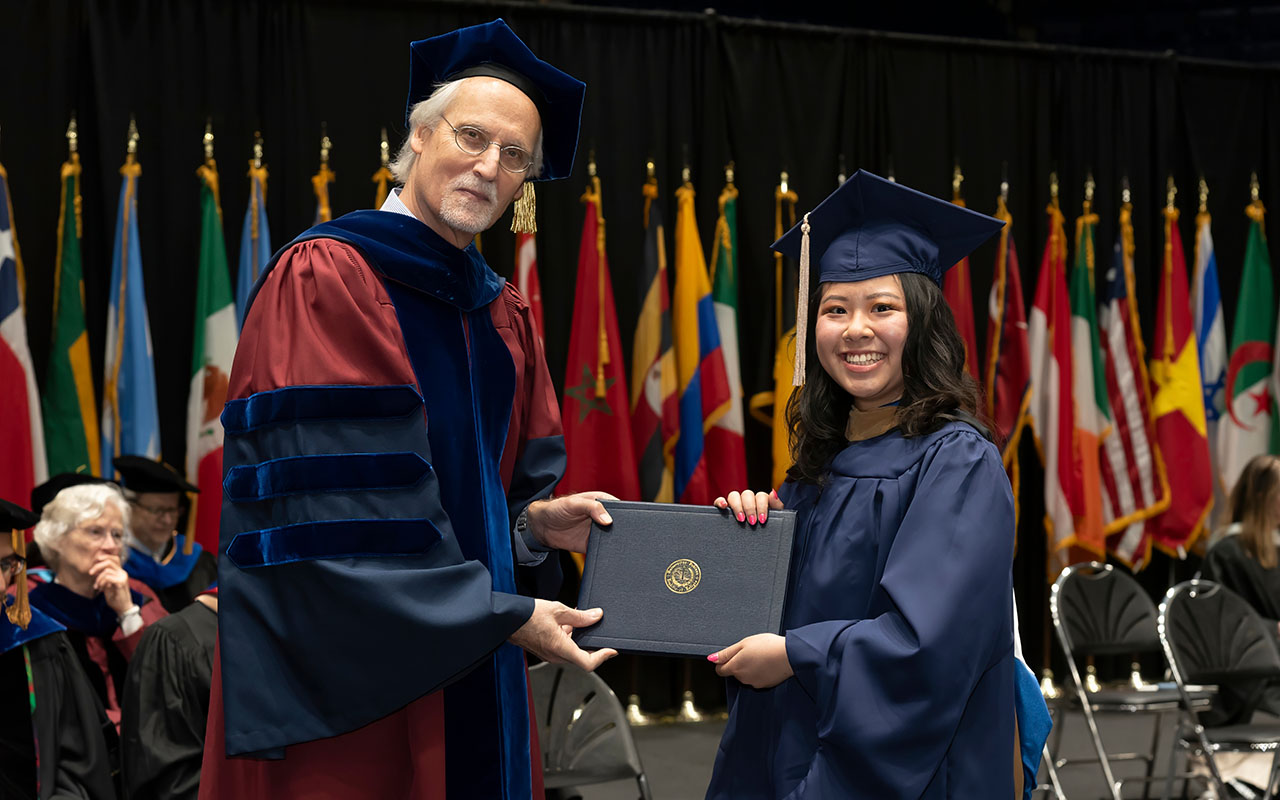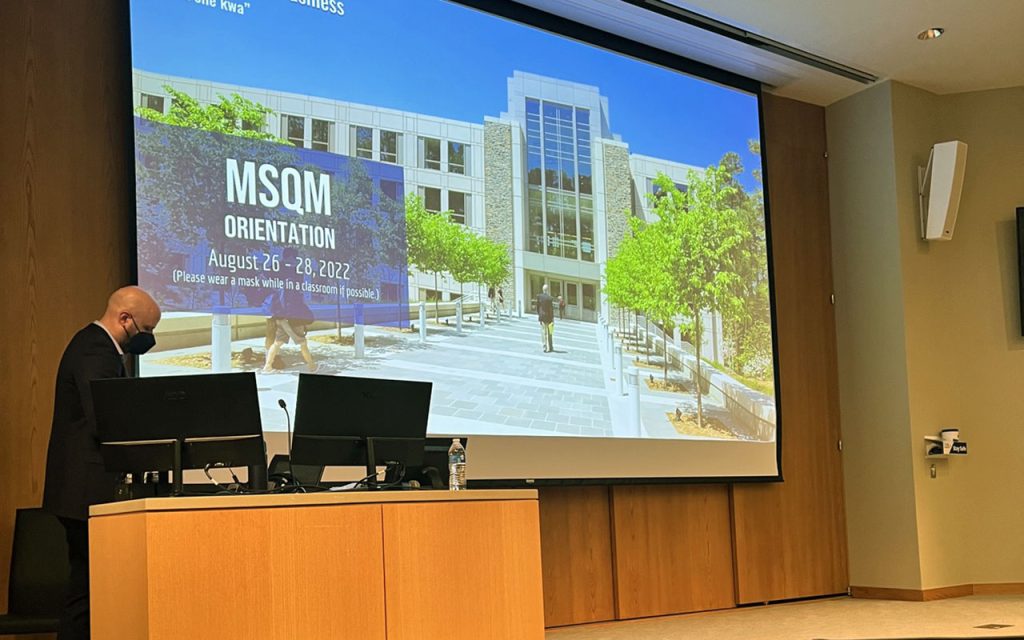Duke MSQM Student Blog

Category:
Learning
Building a Range of New Skills that Immediately Impacted My Career
Over the last two years, not only have I gained highly valuable quantitative skills, but I also developed new communication skills.

It’s easy to feel lost in a sea of greatness. At least that’s how I felt when I walked into orientation two years ago. Surrounded by executives, lawyers, and doctors, I asked myself what perspective I had to offer, if I even had one to offer. At the same time, I realized that if I wanted to be the best, I needed to be with the best. This competitive edge was what made me choose the MSQM: Business Analytics program at Fuqua.
Over the last two years, not only have I gained highly valuable quantitative skills, or “hard skills,” but I developed new relationship and communication skills, or “soft skills.”
Hard Skills
- Analysis Skills: The nature of the program is business analytics, and that’s exactly what I had set out to learn. At the onset of my first term, we started with Applied Probability and Statistics, where I solidified my understanding of tools used in statistics, such as confidence intervals and regressions. Classes built on these concepts with every term that passed.
In Digital Marketing, which I hadn’t expected to be a highly quantitative class, I used skills like building a regression model. Even in the fifth term, as my time in the MSQM program is coming to a close, there is still a strong emphasis on analytic techniques that build on foundational concepts such as linear regression, which I first learned about in my first term. - Programming Skills: I had come into the program knowing there would be some classes on programming. I did not know that we would be learning about two programming languages from one of the first classes I took.
Within the first three months of the MSQM program, I had some basic skills in programming both R and Python. I could not have learned these skills at a more opportune time. I was encountering some data quality concerns in one of the large-scale quantitative research projects I was conducting at work, and I wrote a program in R to validate the data to assuage client concerns. As with the analysis skills, the classes in programming build on each other with each term that passes. Learning not only how to program in R and Python, but also how to create data visualizations in these programs as well, has been extremely useful in my day-to-day work.

Soft Skills
- Navigating Team Dynamics: The MSQM program is team-based, which means some assignments are graded on everyone’s contributions. Having graduated right before COVID, I was not well-versed in how to navigate team dynamics.
Working with my team every term meant that I needed to figure out how to coordinate with others, along with learning how everyone operated. Despite being separated by states or even countries, I was always learning about new perspectives and backgrounds, and I am very grateful for all the support my team and cohort has given me. - Building Confidence: I came into this program unsure of myself yet wanting to uncover skills I did not know I had yet. As my time in the MSQM program progressed, I realized that my team members and my cohort valued my perspective and the thoughts I had to offer. In turn, this made me trust in my ideas more.
I came into this program completely terrified of giving presentations, especially to clients. Just my luck that Business Communications is part of the curriculum! While giving presentations in that class still made me nervous, it was a safe space I treated as a testing ground. This gave me the confidence I needed when presenting to clients in my day-to-day work.



